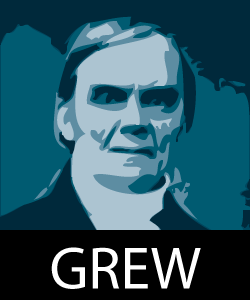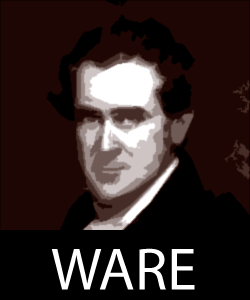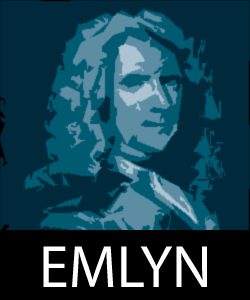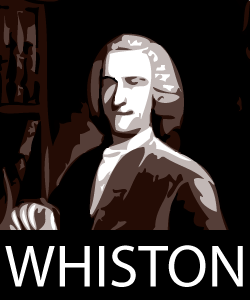
 John 1:1. In this passage of divine truth, it is declared that the Word, who is called God, "was with God." Here also, the holy scripture teaches us, that in whatever sense the Word is called God, he is a distinct being from the supreme God, otherwise he could not be said to be with God. (Page 27)
John 1:1. In this passage of divine truth, it is declared that the Word, who is called God, "was with God." Here also, the holy scripture teaches us, that in whatever sense the Word is called God, he is a distinct being from the supreme God, otherwise he could not be said to be with God. (Page 27)

 1 Corinthians 8:6. But to us there is but one God, the Father, of whom are all things and we in Him; and one Lord, Jesus Christ, by whom are all things and we by him. This text is very positive. It declares that Jesus is our Lord; but that the Father only is our God. Can language be devised which shall declare it more positively? (Page 96)
1 Corinthians 8:6. But to us there is but one God, the Father, of whom are all things and we in Him; and one Lord, Jesus Christ, by whom are all things and we by him. This text is very positive. It declares that Jesus is our Lord; but that the Father only is our God. Can language be devised which shall declare it more positively? (Page 96)

 What would they say to one who should speak or preach so, That Jesus is not God, that he cannot do all things, nor is equal to the Father, etc.? Would they not conclude he was a denier of the deity of Christ, else he would never speak so unguarded? Upon the same account, when Jesus Christ himself says, that he cannot of himself do all things, nor knows all things, and makes no exceptions in his words, we may conclude he also denies his being Supreme God. (Page 198)
What would they say to one who should speak or preach so, That Jesus is not God, that he cannot do all things, nor is equal to the Father, etc.? Would they not conclude he was a denier of the deity of Christ, else he would never speak so unguarded? Upon the same account, when Jesus Christ himself says, that he cannot of himself do all things, nor knows all things, and makes no exceptions in his words, we may conclude he also denies his being Supreme God. (Page 198)

 My Lord, as the best justification I can possibly make for my contempt of this solemn ecclesiastical riddle of a Trinity, must be by proving it, to be utterly false; so the best reason that it is possible to give for abolishing it, will be to show how detrimental it is to Christianity itself. (Page 235)
My Lord, as the best justification I can possibly make for my contempt of this solemn ecclesiastical riddle of a Trinity, must be by proving it, to be utterly false; so the best reason that it is possible to give for abolishing it, will be to show how detrimental it is to Christianity itself. (Page 235)

 Another passage is the speech of Thomas, John 20:28, "My Lord and my God." He must have an immoderate share of gullibility who attempts to elicit a new confession of faith, unknown to the rest of the disciples, from this abrupt exclamation of the apostle, who invokes in his surprise not only Christ his own Lord, but the God of his ancestors, namely, God the Father;—as if he had said, Lord! what do I see,—what do I hear,—what do I handle with my hands? He whom Thomas is supposed to call God in this passage had acknowledged respecting himself not long before, ver. 17, "I ascend unto my God and your God." Now the God of God cannot be essentially one with him whose God he is. (Page 137)
Another passage is the speech of Thomas, John 20:28, "My Lord and my God." He must have an immoderate share of gullibility who attempts to elicit a new confession of faith, unknown to the rest of the disciples, from this abrupt exclamation of the apostle, who invokes in his surprise not only Christ his own Lord, but the God of his ancestors, namely, God the Father;—as if he had said, Lord! what do I see,—what do I hear,—what do I handle with my hands? He whom Thomas is supposed to call God in this passage had acknowledged respecting himself not long before, ver. 17, "I ascend unto my God and your God." Now the God of God cannot be essentially one with him whose God he is. (Page 137)


